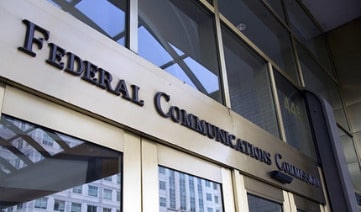The Federal Communications Commission (FCC) continues to defy a court order to reexamine its electromagnetic radiation exposure limits set in 1996. Children’s Health Defense sued the agency in 2019, and won a 2021 ruling requiring the FCC to explain how its guidelines protect human health — but two years later, the agency shows no signs of complying.
Despite the Children Health Defense’s (CHD) “historic win” against the Federal Communications Commission (FCC) nearly two years ago, the FCC has yet to comply with the court mandate to explain how its radiofrequency (RF) radiation exposure guidelines adequately protect humans from harm.
The agency last week published its regulatory agenda for the next six months. The agenda made no mention of the Aug. 13, 2021, U.S. Court of Appeals for the District of Columbia Circuit court decision.
Commenting on the omission, W. Scott McCollough — CHD’s chief litigator for the organization’s electromagnetic radiation (EMR) cases and the lead attorney for its 2021 victory — told The Defender, “The Federal Communications Commission has just formally admitted that it intends to continue disobeying the D.C. Circuit’s August 2021 order requiring it to reassess its RF exposure guidelines.”
Miss a day, miss a lot. Subscribe to The Defender’s Top News of the Day. It’s free.
“This wanton and irresponsible defiance of the court’s order is deplorable,” McCollough said. “Hundreds of thousands, perhaps millions of people are getting sick from RF radiation exposure from devices the FCC is knowingly putting in commerce.”
This is taking place “even though all the most current science tells us the [FCC] guidelines are woefully inadequate to protect sensitive adults and defenseless children, and all the increasing non-natural radiation is contributing to species decline,” McCollough said. “We will not stand for this, and neither should the public.”
CHD sued the FCC in 2019 after the agency determined there was “no appropriate basis” for updating or amending its RF radiation exposure guidelines, which the agency initially set in 1996.
The FCC sought to justify its 2019 decision by saying, “We take to heart the findings of the Food & Drug Administration (FDA), an expert agency regarding the health impacts of consumer products, that ‘[t]he weight of scientific evidence has not linked cell phones with any health problems.’”
However, the D.C. Circuit panel majority — after reviewing 11,000 pages of evidence refuting the FCC’s position — told the FCC it must do a better job of explaining how its 1996 guidelines regarding wireless-based technologies adequately protected public health.
The panel remanded the case back to the FCC, meaning the agency was required to reopen its investigation of its RF radiation exposure guidelines.
The panel majority said the agency must also:
“(ii) address the impacts of RF radiation on children, the health implications of long-term exposure to RF radiation, the ubiquity of wireless devices, and other technological developments that have occurred since the Commission last updated its guidelines, and (iii) address the impacts of RF radiation on the environment.”
The FCC has since refused to take action, despite an April 2023 petition from CHD urging them to “quit stalling” and comply with the court-ordered mandate.
According to McCollough, “The FCC intends to keep stalling until it is too late to do anything because any reductions to the exposure limits would require a massive recall and overhaul of the entire wireless infrastructure they want to get deployed now.”
“They and the wireless industry are obviously planning to make the court remand meaningless through this fait accompli maneuver,” he added.
RFK Jr./Hooker NEW book: Vax-Unvax. Order Now!
FCC report ‘a joke’
Under the Regulatory Flexibility Act, Congress requires agencies such as the FCC to produce a public report twice a year that outlines the agency’s anticipated or ongoing regulatory undertakings.
McCollough called the FCC’s July 27 public report submitted to comply with this law “a joke.”
“This report lists 75 ongoing regulatory ‘actions,’” McCollough said. “For all but one, the ‘Next Action’’ is stated to be ‘undetermined.’ In other words, for the listed actions the FCC tells us it does not know what action, if any, it plans to take next or when it will do so.”
He added:
“This is clearly not true; the commission certainly has plans for the what and when but it prefers to keep only insiders in the know.
“The FCC would much prefer to do its dirty work in a dark back room so only its industry cohorts and masters know what the true ‘agenda’ is.”
McCollough said the remanded docket — meaning the case number for the court-ordered investigation into the science on RF radiation — is not on the list “and there is no other ‘action’ that would suit the FCC’s court-ordered duties.”
Miriam Eckenfels-Garcia — who directs CHD’s EMR program — said:
“We are very disappointed to see that the FCC continues to fail to comply with the court order and continues to ignore the ever-growing scientific evidence of human and environmental harm from RF radiation levels well below the current FCC exposure guidelines.”
According to Eckenfels-Garcia, CHD’s EMR team has identified several available legal options given the FCC’s continued refusal to obey the 2021 court mandate and will be initiating action on them soon.
“The agency’s lack of prioritizing the protection of humans and the environment makes clear how deeply captured the agency is,” Eckenfels-Garcia added.
The Defender reached out to the FCC to ask when the public might expect the agency to comply with the 2021 mandate, but the agency did not respond by our publication deadline.
Suzanne Burdick, Ph.D., is a reporter and researcher for The Defender based in Fairfield, Iowa.
